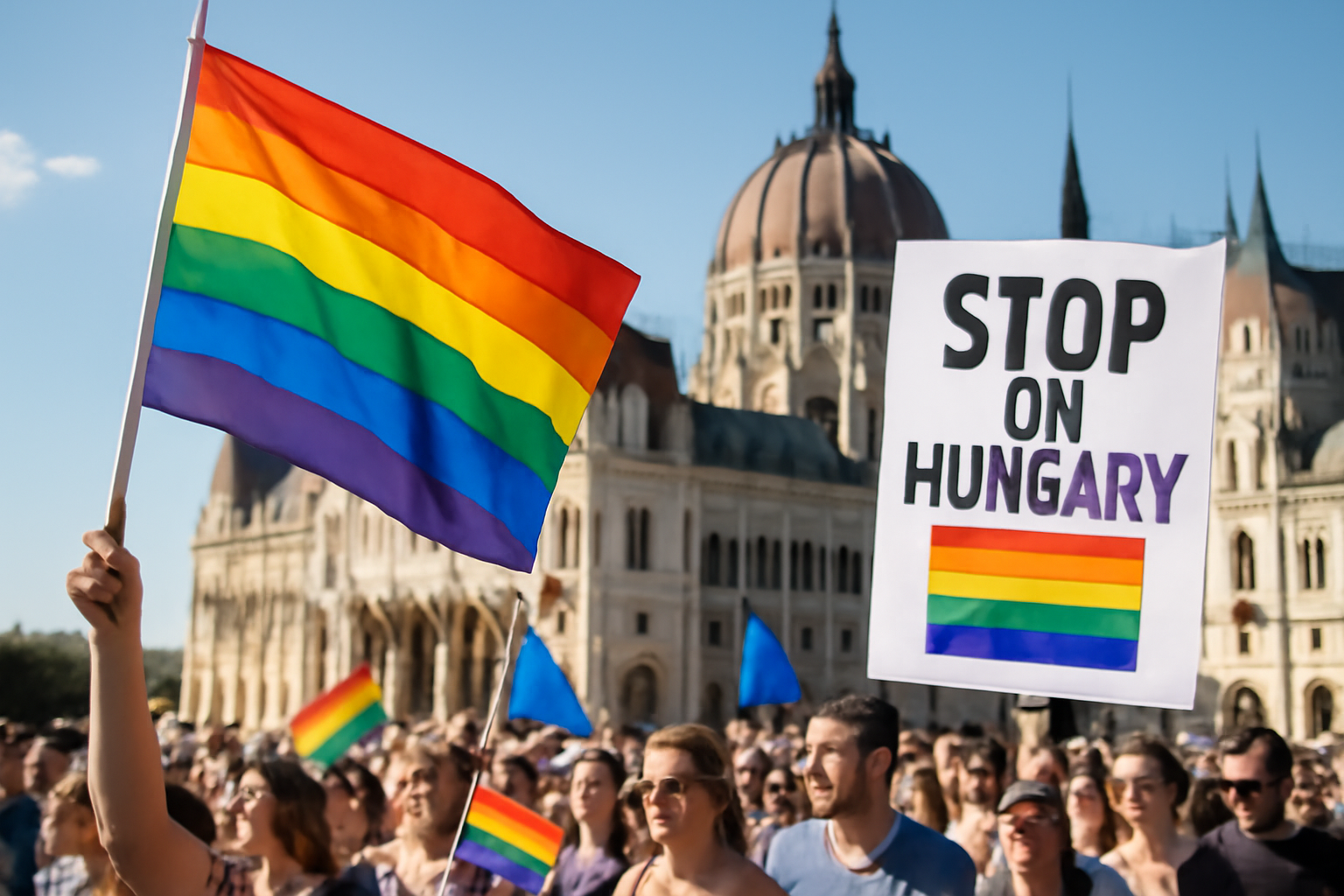
Across Europe, a significant number of countries, including France and Germany, are advocating for decisive action from the European Commission (E.C.) against Hungary's recent legislation banning Pride events. This call to action comes in the form of a strongly-worded letter addressed to the E.C. by numerous European Union member states, urging the use of legal mechanisms to challenge Hungary's restrictive laws.
Legal and Political Backdrop
The controversy stems from Hungary's introduction of the Assembly Act, a law that prohibits events featuring any "depiction or promotion" of homosexuality if minors are potentially present. The law imposes fines and authorizes the use of facial recognition technology to monitor attendees at such events. This legislation was expedited through Hungary’s Parliament, sparking widespread condemnation.
Notably, this new law expands upon Hungary’s 2021 legislation that restricts the portrayal of LGBTQ+ topics to those under 18, affecting educational content and media representations.
The law has been met with protests from Hungary's LGBTQ+ community, and the European Union has criticized Hungary for infringing upon the rights of its citizens to peacefully assemble.
International Response and Potential Actions
The coalition of countries advocating against Hungary's legislation includes Austria, Belgium, Czechia, Denmark, Estonia, France, Finland, Germany, Ireland, Latvia, Lithuania, Luxembourg, the Netherlands, Portugal, Slovenia, and Sweden. These nations are pushing for the E.C. to take concrete steps, although the letter does not specify exact measures.
One proposed action is an "interim measure" akin to an injunction to halt the enforcement of the ban—an urgent need as Budapest's Pride events approach.
The E.C. has already withheld €18 billion in funding due to Hungary’s violations related to rule-of-law principles, reflecting broader discontent with Prime Minister Viktor Orban’s consolidation of power and measures against civil organizations.
Despite these efforts, there are challenges. Commissioner for Humanitarian Aid and Crisis Management Hadja Lahbib expressed doubts about the feasibility of pursuing an interim measure, citing insufficient support within the E.C.
The Broader Implications for EU-Hungary Relations
Further complicating the situation, the E.U. is contemplating the "nuclear option" of suspending Hungary's voting rights in the European Council. This drastic measure would require the agreement of four-fifths of E.U. countries and unanimous consent from all member states except Hungary.
This potential action is not only a response to the Pride ban but also to Hungary's pattern of opposition to E.U. policies, such as resisting aid to Ukraine.
European Commissioner Michael McGrath highlighted the importance of the rule of law, stating that adherence to these principles is non-negotiable for E.U. membership, emphasizing that the current situation in Hungary “is just not acceptable.”
Conclusion and Forward Actions
The unfolding scenario presents a complex challenge for the European Union, balancing the enforcement of its core values with diplomatic relations among its members. The effectiveness of any actions taken by the E.C. will be closely monitored, especially by Pride organizers who are resolute in their plans to celebrate on June 28.
The situation in Hungary remains under intense scrutiny, as the international community awaits the European Commission's next steps, mindful of the broader implications for LGBTQ+ rights and European unity. As these developments progress, the global LGBTQ+ community remains vigilant, advocating for equality and the fundamental freedoms of expression and assembly.
For more insights, subscribe to our newsletter and stay updated on political developments affecting the LGBTQ+ community.
Related Posts
Triumphant Trans Woman Wins Legal Battle and Inspires Others to Stand Up for Their Rights
Breaking new ground: a landmark victory in transgender rights After battling in courtrooms and enduring endless challenges, Diana Portillo, a transgender woman, has secured a monumental victory in her decade-long fight against workplace discrimination. The result? Nearly $1 million awarded in a historic settlement. But this isn't just a win on paper—it represents a powerful precedent in combati [...]
Pride Month in Latin America: Protests and Demands for Equality
**Celebrating Pride and advocating LGBTQ+ rights in Latin America** Pride Month in Latin America was a lively mix where celebration met activism. Communities united, not just throwing a party but making a stand—demanding equality and pushing governments toward better protection and rights recognition. Throughout Latin America, pride events erupted in marches and cultural displays, each with a c [...]
Transgender Erasure Actions Implemented by National Park Service
```html Trump administration's impact on national park service and transgender recognition The Trump administration made notable moves in undermining transgender representation, which included directing agencies like National Park Service not include "T" and "Q" when they refered “LGBTQ” in any official communication. This move seems part a broader plan by this administration aimed at reducin [...]